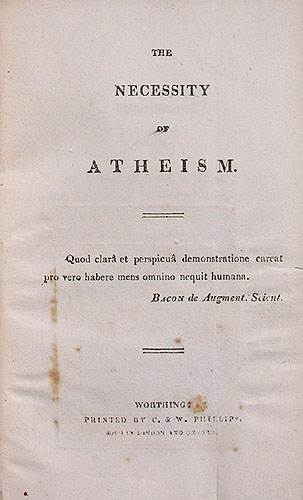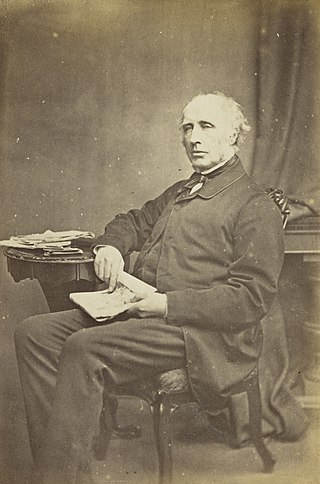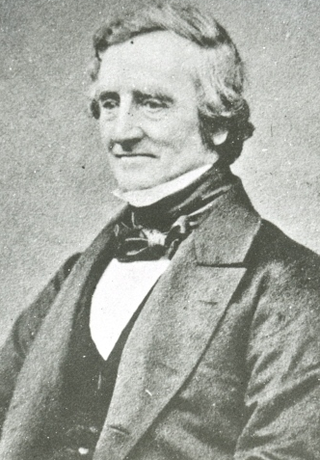Related Research Articles

"The Necessity of Atheism" is an essay on atheism by the English poet Percy Bysshe Shelley, printed in 1811 by Charles and William Phillips in Worthing while Shelley was a student at University College, Oxford.

The High Court of Justiciary is the supreme criminal court in Scotland. The High Court is both a trial court and a court of appeal. As a trial court, the High Court sits on circuit at Parliament House or in the adjacent former Sheriff Court building in the Old Town in Edinburgh, or in dedicated buildings in Glasgow and Aberdeen. The High Court sometimes sits in various smaller towns in Scotland, where it uses the local sheriff court building. As an appeal court, the High Court sits only in Edinburgh. On one occasion the High Court of Justiciary sat outside Scotland, at Zeist in the Netherlands during the Pan Am Flight 103 bombing trial, as the Scottish Court in the Netherlands. At Zeist the High Court sat both as a trial court, and an appeal court for the initial appeal by Abdelbaset al-Megrahi.
Laws prohibiting blasphemy and blasphemous libel in the United Kingdom date back to the medieval times as common law and in some special cases as enacted legislation. The common law offences of blasphemy and blasphemous libel were formally abolished in England and Wales in 2008 and Scotland in 2024. Equivalent laws remain in Northern Ireland.

A sheriff court is the principal local civil and criminal court in Scotland, with exclusive jurisdiction over all civil cases with a monetary value up to £100,000, and with the jurisdiction to hear any criminal case except treason, murder, and rape, which are in the exclusive jurisdiction of the High Court of Justiciary. Though the sheriff courts have concurrent jurisdiction with the High Court over armed robbery, drug trafficking, and sexual offences involving children, the vast majority of these cases are heard by the High Court. Each court serves a sheriff court district within one of the six sheriffdoms of Scotland. Each sheriff court is presided over by a sheriff, who is a legally qualified judge, and part of the judiciary of Scotland.

Cosmo Nelson Innes FRSE was a Scottish advocate, judge, historian and antiquary. He served as Advocate-Depute, Sheriff of Elginshire, and Principal Clerk of Session.
Thomas Aikenhead was a Scottish student from Edinburgh, who was prosecuted and executed at the age of 20, on a charge of blasphemy under the Act against Blasphemy 1661 and Act against Blasphemy 1695. He was the last person in Great Britain to be executed for blasphemy. His execution occurred 85 years after the death of Edward Wightman (1612), the last person to be burned at the stake for heresy in England.

Richard Carlile was an English radical publisher and writer. He was an important agitator for the establishment of universal suffrage and freedom of the press in the United Kingdom.
Ruth Anderson has extensive experience of the criminal justice system. She was admitted as a solicitor in 1972, and as an advocate in 1991, taking silk in 1999. Her practice at the Bar has been principally a criminal one, defending in the High Court of Justiciary. She also served as an Advocate Depute from 1998 until January 2001. Miss Anderson has had local government experience and has also worked in private practice as a solicitor. She was appointed a part-time Sheriff in May 2003 and a full-time sheriff in September 2006. Ruth Anderson now owns a bookshop in Wigtown, name'd Well-Read Books of Wigtown.

John William Gott was a British socialist and the last person in Britain to be sent to prison for blasphemy. His was also the last public prosecution. Later prosecutions were purely private.

The World's End Murders is the colloquial name given to the murder of two girls, Christine Eadie, 17, and Helen Scott, 17, in Edinburgh, in October 1977. The case is so named because both victims were last seen alive leaving The World's End pub in Edinburgh's Old Town. The only person to stand trial accused of the murders, Angus Robertson Sinclair, was acquitted in 2007 in controversial circumstances. Following the amendment of the law of double jeopardy, which would have prevented his retrial, Sinclair was retried in October 2014 and convicted of both murders on 14 November 2014. He was sentenced to life imprisonment with a minimum term of 37 years, the longest sentence by a Scottish court, meaning he would have been 106 years old when he was eligible for a potential release on parole. He died at HM Prison Glenochil aged 73 on 11 March 2019. Coincidentally, he died on the same day the BBC's Crimewatch Roadshow programme profiled the murders.

The Political Martyrs Monument, located in the Old Calton Burial Ground on Calton Hill, Edinburgh, commemorates five political reformists from the late 18th and early 19th centuries. Designed by Thomas Hamilton and erected in 1844, it is a 90 ft (27 m) tall obelisk on a square-plan base plinth, all constructed in ashlar sandstone blocks. As part of the Burial Ground it is Category A listed.
The Oracle of Reason, or Philosophy Vindicated was the first avowedly atheistic periodical to be published in Britain. It was founded by Charles Southwell, William Chilton and John Field in 1841, and lasted until 1843. Several of its editors were imprisoned for blasphemy.

Scots law is the legal system of Scotland. It is a hybrid or mixed legal system containing civil law and common law elements, that traces its roots to a number of different historical sources. Together with English law and Northern Irish law, it is one of the three legal systems of the United Kingdom. Scots law recognises four sources of law: legislation, legal precedent, specific academic writings, and custom. Legislation affecting Scotland and Scots law is passed by the Scottish Parliament on all areas of devolved responsibility, and the United Kingdom Parliament on reserved matters. Some legislation passed by the pre-1707 Parliament of Scotland is still also valid.
Events from the year 2001 in Scotland.

James Watson was an English radical publisher, activist and Chartist. His colleagues in political activity included Henry Hetherington, William Lovett, Thomas Wakley, Thomas Slingsby Duncombe, and Thomas Cooper.
Suzanne Pilley was a 38-year-old British bookkeeper from Edinburgh, Scotland, who went missing on the morning of 4 May 2010. Following a highly publicised appeal for information on her whereabouts and intensive police enquiries, her former lover, David Gilroy, was arrested and charged with her murder. He was found guilty by majority verdict on 15 March 2012 and sentenced to life imprisonment. The judge ordered him to serve a minimum of 18 years in prison. The case is controversial because the prosecution obtained a murder conviction without a body. The body of Suzanne Pilley has never been found.

James Mitchell or James Mitchel,, was a religious covenanter who tried to assassinate Archbishop James Sharp.
The Anti-Persecution Union was a British organisation established by the freethinkers George Jacob Holyoake and Emma Martin in 1842, to aid in defending individuals accused of blasphemy and blasphemous libel. Its object was "to assert and maintain the right of free discussion, and to protect and defend the victims of intolerance and bigotry".
William John Birch (1811–1891) was an English rationalist writer.

The Justiciary Building is a judicial structure in the Lawnmarket in Edinburgh, Scotland. The structure, which operates in conjunction with similar facilities in Glasgow and Aberdeen, is dedicated for the use of the High Court of Justiciary, which is the supreme criminal court in Scotland. It is a Category B listed building.
References
- 1 2 3 Stein, Gordon (1981). Freethought in the United Kingdom and the Commonwealth : a descriptive bibliography. Westport, Conn.: Greenwood Press. ISBN 978-0-313-20869-0.
- ↑ Taylor, Barbara (1993). Eve and the New Jerusalem : socialism and feminism in the nineteenth century (1. Harvard Univ. Press pbk. ed.). Cambridge, Mass.: Harvard Univ. Press. p. 150. ISBN 9780674270237.
- 1 2 3 Holyoake, George Jacob (1892). Sixty years of an agitator's life. Cornell University Library. London, T. F. Unwin.
- 1 2 An Anthology of atheism and rationalism. Buffalo, N.Y.: Prometheus Books. 1980. ISBN 978-0-87975-136-4.
- ↑ Roalfe, Matilda. "Law breaking justified". Europeana.eu. Retrieved 28 November 2013.
- ↑ "The trial of Thomas Paterson, for blasphemy, before the High Court of Justiciary, Edinburgh, with the whole of his bold and effective defence". Open Library. Open Library.org. Retrieved 28 November 2013.
- 1 2 Thomas Finlay, Scotland High court of justiciary (1844). "The Man Paterson.": God Versus Paterson. The Extraordinary Bow-street Police Report ... University of Michigan. G. Clarke.